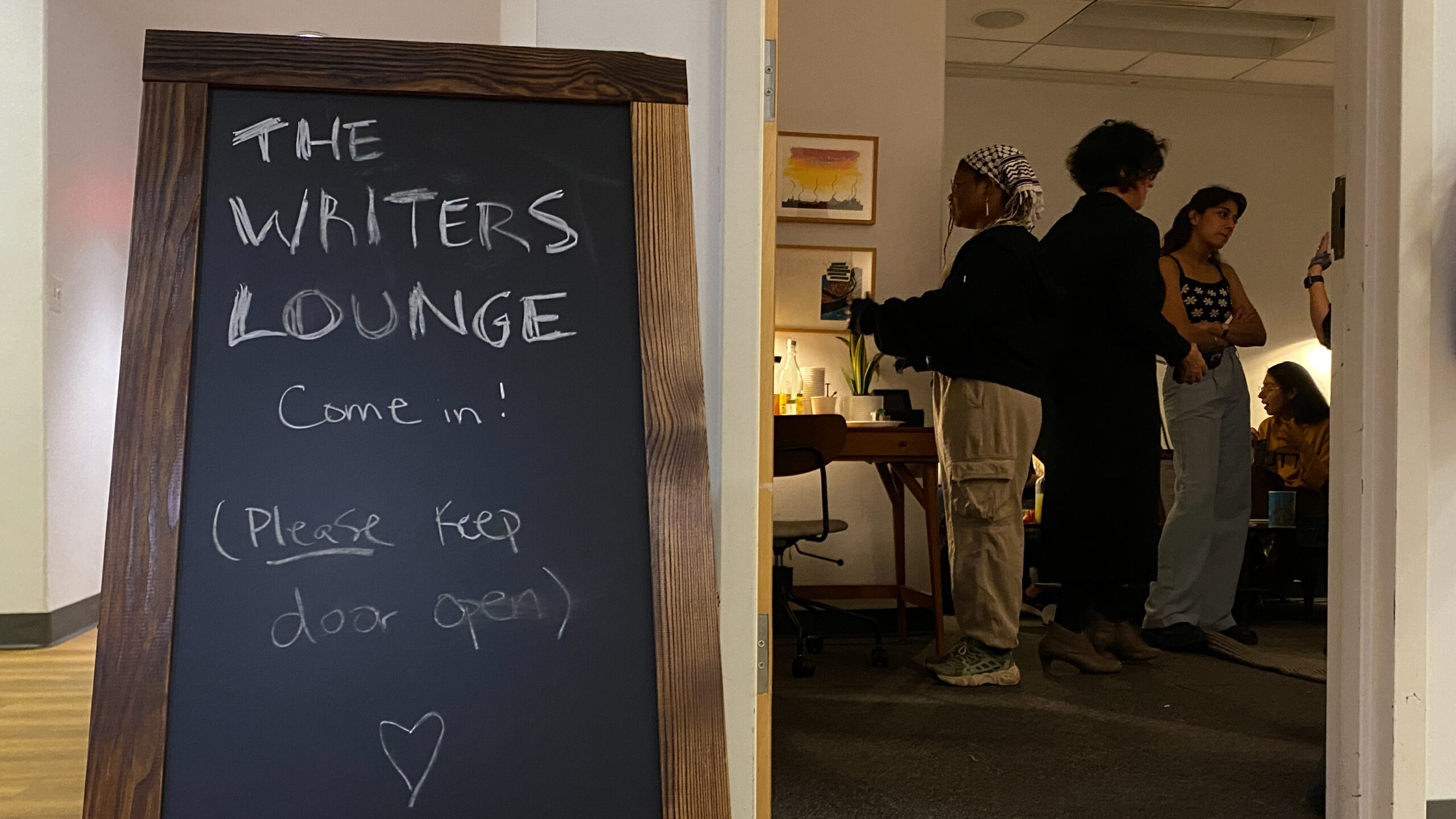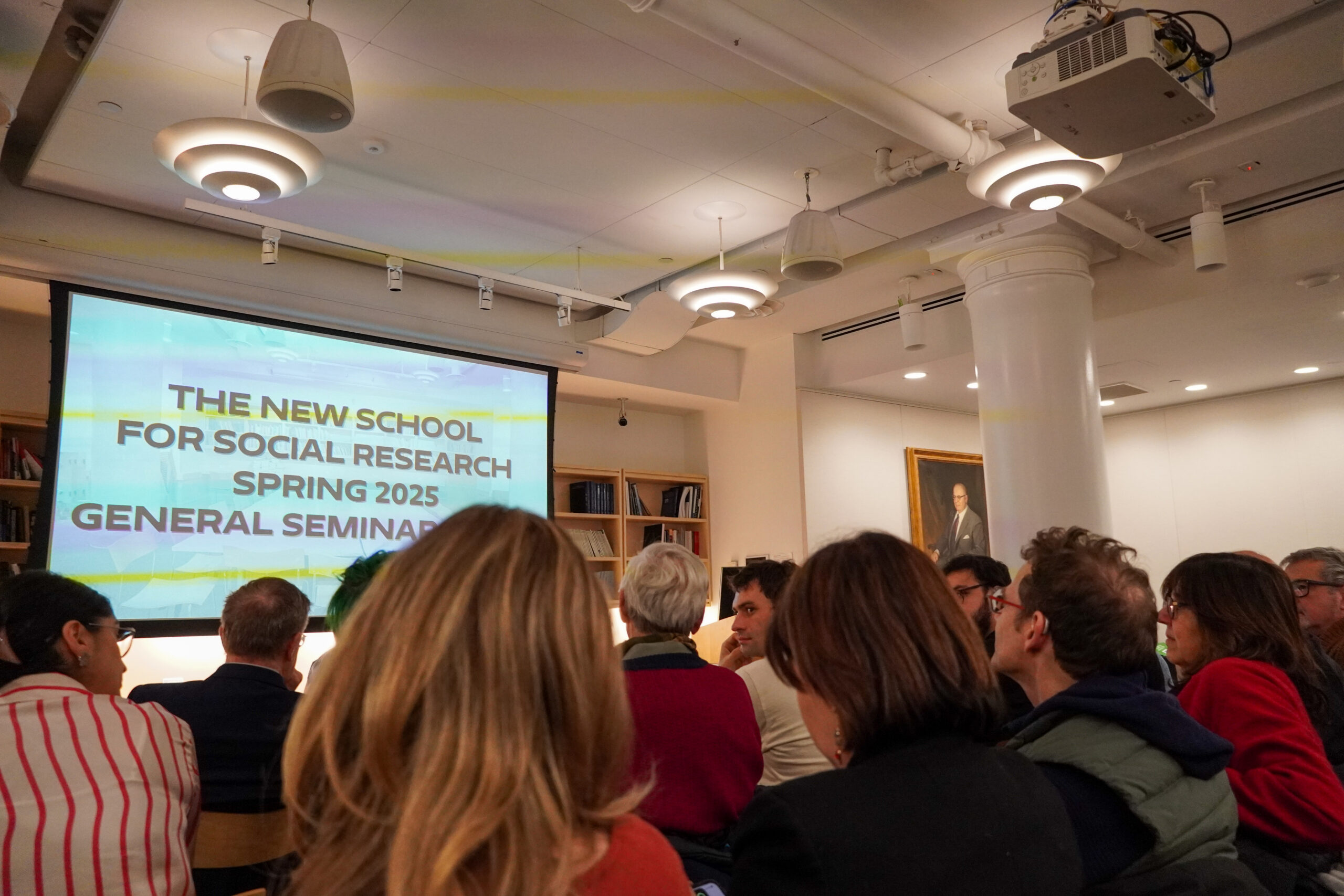Though you may’ve never heard of it, the Food Studies program at The New School officially became a major back in 2010 and now has 44 students majoring and minoring in, that’s right, you guessed it, all things food.
Outside of The New School, food studies has been developing in the world of academia for about 20 or 25 years, according to Fabio Parasecoli, an associate professor at The New School for Public Engagement and the director of the Food Studies Initiatives. Before it gained traction and popularity, there was the sense that food is just “everyday stuff” unworthy of a deep study. “Precisely because it is everyday stuff is why we should study it,” he said.
Parasecoli described the program as very interdisciplinary, as students must look at a plethora of issues to have a full understanding. “[Food Studies] is the study of the production, distribution and consumption of food from a cultural, social and political point of view,” Parasecoli said.
The program offers about 30 different courses, ranging from ‘Eating Identities: Food, Gender and Race’ to ‘Restaurant Ownership: From Startup to Profitability’ and Parasecoli’s own course, ‘The Global Food System.’ “We really try to offer a variety of classes that allow students to pick what they’re most interested in,” he said.
The Food Studies Program first started out as just a few courses at The New School for Public Engagement in 2008. Parasecoli was brought into the Food Studies program in 2010, helping it blossom into a major, minor and just this fall, an associate’s degree program. Today there are 31 food studies majors and 10 food studies minors coming from Parsons, Lang and NSPE, along with three students in the associate’s degree program. As Food Studies is a part of The New School for Public Engagement, many of the students are adults or transfer students who already have experience in the food industry. “Amongst my peers, many of whom have attended the ICC and are chefs, I’m usually the youngest food studier,” Kayla Roolaart said, a 19-year-old food studies major.
About 60% of students taking Food Studies courses are not actually NSPE students — most commonly, the students are coming from Lang or Parsons. The program is continuing to grow, as students’ interest in the program, and food itself, increase more and more.
“When explaining my major to a person puzzled by it, I often tell them about the three potential tracks: culture and media, healthy and environment and policy,” Rolaart said.
One of Parasecoli’s main focuses right now is developing the Food Design courses, with the hopes of creating a Food Design minor. Food Design is defined as an “emerging transdisciplinary [topic] concerned with any action that can improve our relationship to food in a variety of ways and instances.” These instances range from the actual design of the food itself, its context, objects, spaces and practices.
A few months ago, on November 5th, The New School hosted the 2nd International Conference on Food Design; a two day conference with 170 scholars and practitioners from all over the world. This conference was especially important to the Food Studies program, as it was the second international conference regarding Food Design ever. In order to heighten the incentive for students to attend the conference, administration offered 1 credit for any all students in attendance.
Since Food Studies is such an interdisciplinary subject, the types of jobs that students in the program may go into vary across the board. “We just had our first Food Studies graduates last summer, and right now they are working in different kinds of food business,” Parasecoli said. In addition to the business side of all things food, students commonly go into policy and activism. “We’re still looking at [last year’s graduates] to see what they do, it’s still so new.”
“Within [food studies] there’s culinary journalism, design, psychology, history, science, activism, business, gender studies, race studies and politics,” Rolaart said in regards to the opportunities that the food studies program can lead into. She expressed her desire for wanting to work for Food52, an online publication that aims to bring cooks together to exchange recipes and ideas. After exploring social justice and sustainability through the lense of food, her interests are becoming more geared towards a career in working towards a more sustainable, just food system.
To further opportunities for students, the English as a Second Language and Food Studies Programs have teamed up with the International Culinary Center (ICC), the acclaimed culinary school based here in NYC, creating the ESL + Food Certificate, which is a program designed to give students who want to attend culinary school at the ICC intensive English language education. One of the core courses included is the ‘Language of the Kitchen’ class, a course designed to help non-english speaking students with the desire to work in the food industry, specifically as chefs, this program opens the door to more than just the English language, but the language of food itself. This program is still developing, however administration is expecting more students in the summer and fall.
“The study of food is an emerging field yet its so prominents and relevant to all of our lives and everything about it,” Rolaart said. “There’s so much to it, but for me it’s about the food that’s good for you and good to you, good for those who produce it, and good to the planet that sustains it.”







